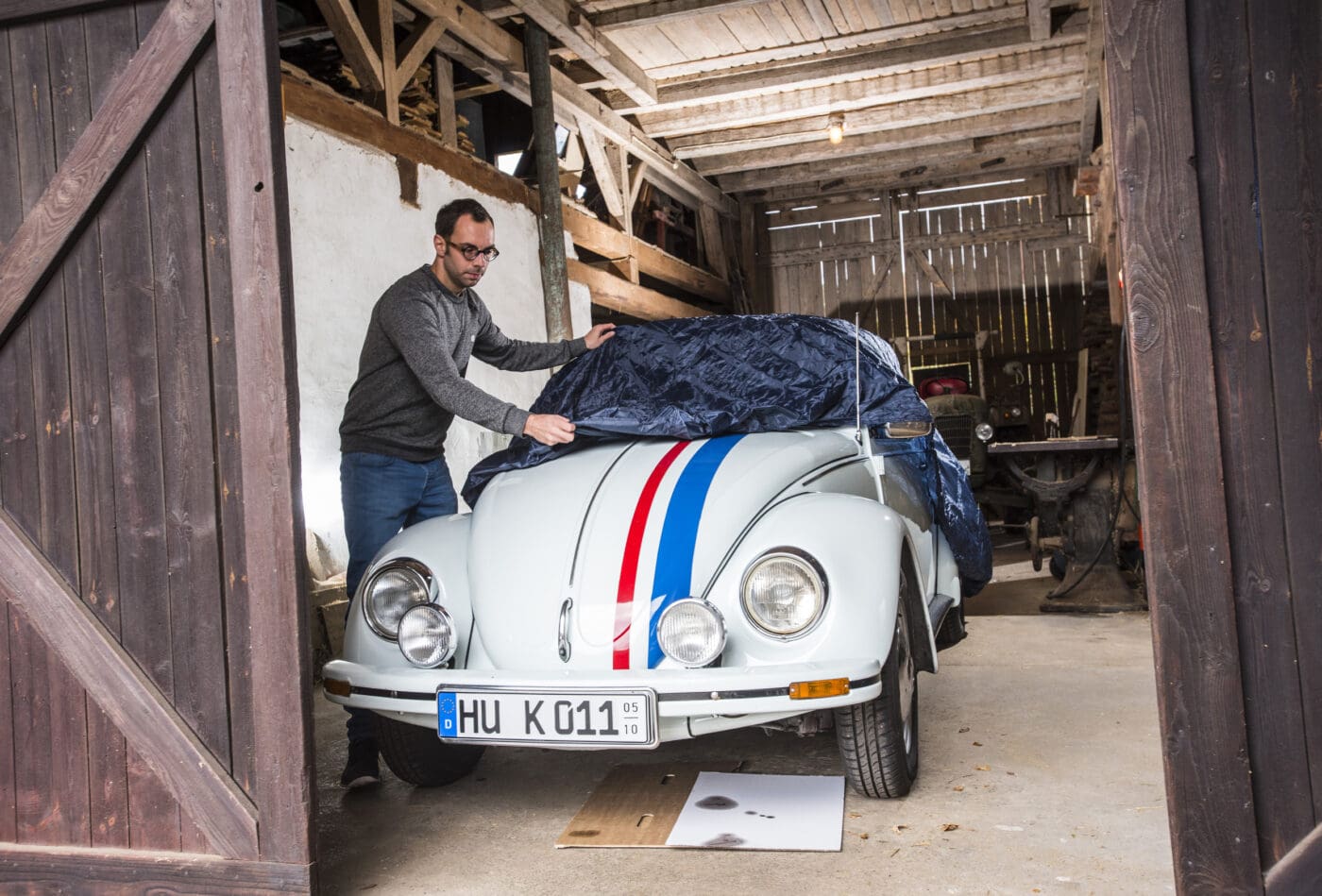Classic cars: How to winterize your treasure
ADVICE For most classic car enthusiasts, the active driving season ends in the fall, as this is the only way to safely protect their automotive treasure from the damaging effects of low temperatures and salted roads.

The corrosion protection of older cars is often poor. A thorough vehicle wash should therefore be carried out before winter storage. Ideally, the subsequent drying should be supplemented by carefully blowing out the body joints with compressed air. To prevent rust forming inside the fuel tank, it is sufficient to fill it up to the overflow limit. The tire pressure can also be increased to the recommended maximum at the same time.
Antifreeze and oil change
However, classic car owners should refrain from jacking up the car to protect it from flat spots. There is too great a risk that the permanent relief of the chassis will lead to damage to joints, bushings and bearings. Special mats or half-filled sandbags offer additional protection here.
When it comes to changing the oil, opinions differ as to whether this should be done at the end of the season or immediately before the start of the new season. More important than the timing is that the oil is changed at all. It is also advisable to replace the oil filter. You should also check whether there is enough antifreeze in the coolant. Door rubbers and seals can be treated with a glycerine stick or rubbed with powder to keep them supple.
It is important to ventilate regularly
Heated garages are not recommended because the heating creates a dry indoor climate that makes rubber and plastic parts brittle and causes them to age more quickly. On the other hand, humidity can collect in cold garages and settle on the car. Regular ventilation and dehumidifiers can help to prevent this. The battery should be disconnected and connected to a charger. If this is not possible, the terminals should be greased to protect them against moisture. This is particularly important for 6-volt batteries, as they tend to outgas.









